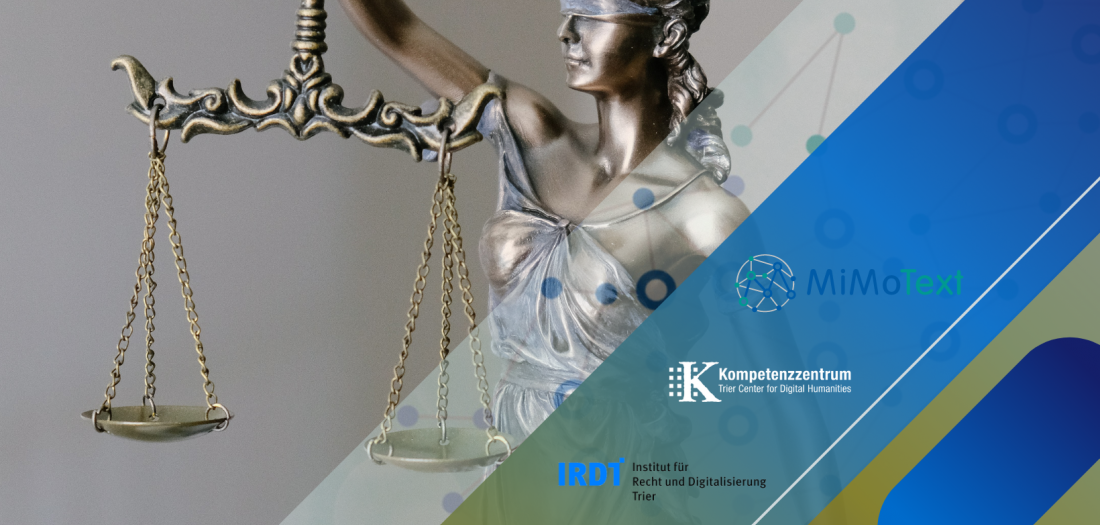Legal Manual published
“The Presentation of Parts of Texts as a Supplement to Text Analysis”
16.12.2021 | General, Project News

Photo by Tingey Injury Law Firm on Unsplash
Therefore, restrictions by German copyright law must be observed. The legal guidance “The Presentation of Parts of Texts as a Supplement to Text Analyses” presents, on the one hand, the prerequisites for the copyright protection of parts of texts and, on the other hand, deals with the additional possible protection of parts of press publications. The manual is published as part of a series “IRDT PaperSeries”, in which legal research issues are identified from the MiMoText project.
The ongoing project work reveals legal research issues that are relevant for the Digital Humanities. Corresponding problem areas are addressed with these manuals. This offers suggestions beyond the project context to the Digital Humanities, but also, for example, to the Edition Sciences. The goal is to present legally relevant problem areas in an abstract and interdisciplinary way.
A manual on the “Use of Scientific Editions for Text Analyses” has already been published. It discusses from a legal perspective the use of such editions in text analyses. Editions are used. for example, because of an easier machine readability. The focus is on the ancillary copyright of the scientific edition according to § 70 UrhG and the question of which parts of a scientific edition can be used freely and which parts are subject to restrictions by German copyright law.
As part of the “IRDT PaperSeries”, a text on “Criteria for Copyright Protection of Texts and Collections” is also online. It provides important basic legal knowledge by explaining the general criteria for copyright protection of texts and collections. Based on these criteria, it is possible to classify whether objects which are protected by copyright are used in text analyses.
The Institute for Digital Law Trier (IRDT; Prof Dr Benjamin Raue, Katharina Erler-Fridgen) contributes its legal expertise to the MiMoText project. Prof Dr Christof Schöch, Dr Maria Hinzmann, and Dr Claudia Bamberg deserve special thanks for their important impulses from the Digital Humanities and Edition Sciences. The Manuals appear in the IRDT's PaperSeries, in which the research results of the institute are published.
Legal manuals on further legal problem areas identified in the project context are planned.

